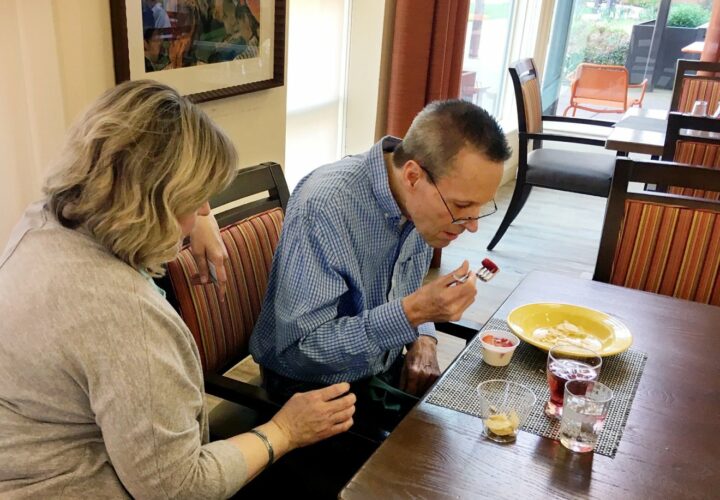It's no secret that caregivers are stressed — and sleep-deprived to boot — and while "Make time for you" is popular advice, it can be hard to pull off. Here are five quick things to try today to help reduce stress and try to keep it in check.
Caregivers: If you’re constantly worrying or feeling anxious, overwhelmed or moody, if you have difficulty concentrating, if you’re depressed or agitated, if your self esteem is low, if you’re eating more or less than usual, if your sleeping habits have changed … that might be stress.
The tricky thing about stress is it becomes a vicious cycle: Stress can make us lose sleep or stress eat, but in turn, our bodies are most vulnerable to stress when we are not getting enough sleep or when we’re not eating well. We’re also especially vulnerable to stress when we don’t have a network of support (friends, family, or professionals); when we’re experiencing a major life change such as moving, starting a new job, having a child, getting married, or mourning the death of a loved one; or when we are in poor physical health.
Many of us have accepted stress as a normal part of life. But it’s important to keep in mind that stress is more than just an unpleasant feeling. It can impact our bodies — including our brains. There are plenty of long-term ways to address stress but for starters, here are five things to try right now.
1. Get moving.
Researchers have long known that exercise can boost mental health through the natural production of stress-relieving hormones. It promotes good physical health, which reduces stress on its own. So if you can take a moment for physical activity, do that. But if not, know that studies have shown that even just spending time outside can improve mood in both the short and long term.
If you can do a physical activity, but you can’t go outside, take a few minutes and do some stretching.
STUDY: Stress Can Eat Up ‘Cognitive Reserve’ That Defends Your Brain From Dementia
2. Eat something healthy.
Unprocessed foods — for example, whole grains, veggies, fresh fruit — make up the foundation of physical and mental health. Good foods and the right nutrients (like B12 and Vitamin D) can be mood stabilizing too. Consider fixing yourself a special, healthy meal, and if that’s too far a reach for today, try replacing a less healthy snack with something whole and fresh.
3. Meditate.
Meditation is good for the brain. Some research has even found that meditation can even change your genetic health for the better, helping to alter gene expression in Alzheimer’s pathology to fight inflammation. Free mindfulness apps or YouTube videos can help guide you through a quick and simple meditation practice.
4. Take a moment for yourself — even just a moment.
It can be hard to set aside time to do something that makes you feel good. But try, even if it’s just 10 minutes to read for pleasure, take a stroll, call a friend … In an essay for Being Patient, caregiver Tanya Ward Goodman recommended, among other things, indulging in naps.
Feeling Foggy? 6 Things You Need to Know About Sleep and Your Brain
5. Know you need to reduce your stress level? Ask for help.
A network of support — whether it’s friends, families, caregiving assistants either paid or volunteer, a patient advocate, or a therapist — is critical to good mental health.
Some may feel they have no one to turn to, but a number of organizations — including the Alzheimer’s Association which has launched virtual support groups and lessons, or the Alzheimer’s Association which has a 24/7 hotline (800-272-3900) — have built support communities especially for dementia caregivers.
“We want people to know that they’re not alone in this journey,” Claire Day, Chief Program Officer of the Alzheimer’s Association Northern California and Northern Nevada Chapter told Being Patient.
Reach out to a friend, or get involved with a caregiver community for a built-in network of knowledge sharing and support. More resources can be found here.





Thank you for this important information.
Very helpful….it gives me hope.
Timely advice! The holiday season has started and stress reigns. Thank you!
Thank you for your kind words, Leslie! We’re glad the advice resonated with you during this busy season. Wishing you a stress-free holiday season!